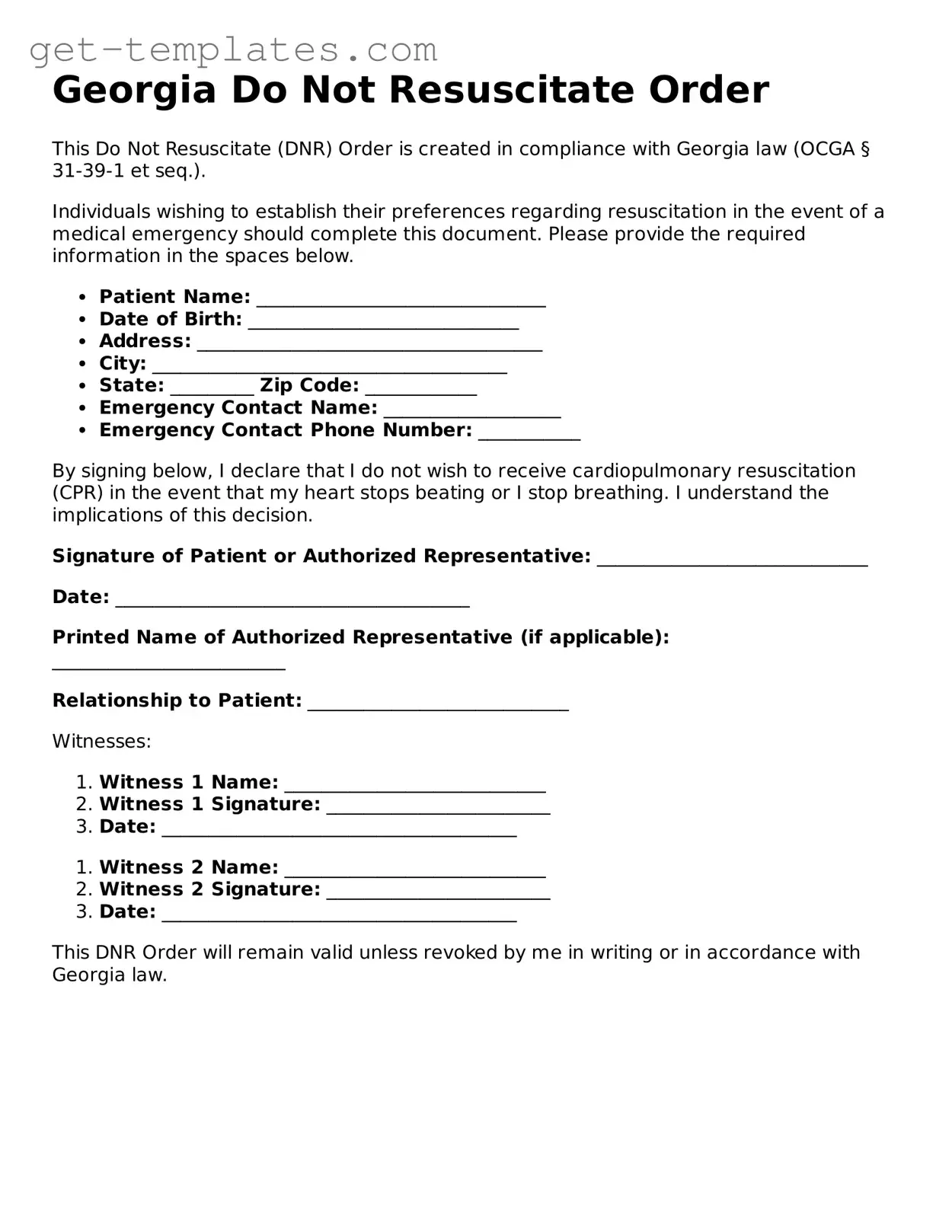Attorney-Approved Do Not Resuscitate Order Document for Georgia
A Georgia Do Not Resuscitate (DNR) Order form is a legal document that allows individuals to express their wishes regarding medical treatment in the event of a life-threatening situation. By completing this form, a person can indicate that they do not want resuscitation efforts, such as CPR, if their heart stops or they stop breathing. Understanding the implications of this form is crucial for both patients and healthcare providers.
Get Document Online

Attorney-Approved Do Not Resuscitate Order Document for Georgia
Get Document Online
You’re halfway through — finish the form
Finish Do Not Resuscitate Order online — edit, save, download made easy.
Get Document Online
or
⇓ PDF Form
